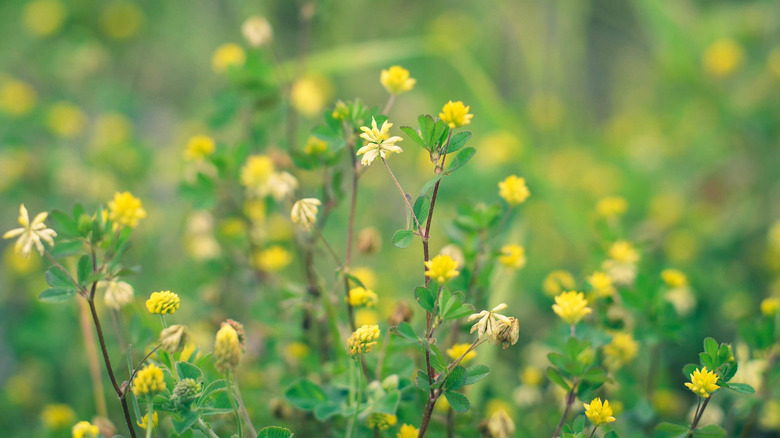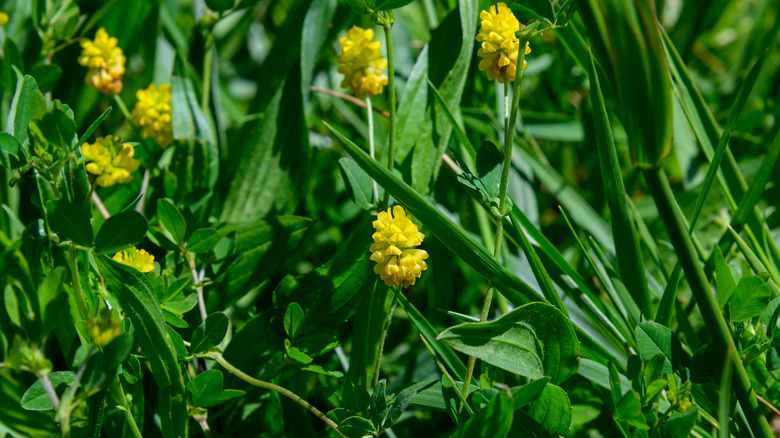The Underrated Benefits Of Having Black Medic Weeds In Your Lawn
Did you recently stumble across a bunch of round, yellow flowers in clover-like clusters in your lawn? Maybe you even admired their beauty for a second, and then stopped short, frozen in your tracks, wondering how exactly they got there in the first place? What you unwittingly witnessed is the black medic weed (Medicago lupulina), and you're also right in considering it a nuisance that could break the calm serenity of your lawn, but before you begin frantically searching for ways to keep black medic weeds out of your lawn, we advise you to take a deep breath.
After all, just one household essential (vinegar) is all you need to banish them for good, anyways. But what if we told you that this plant can actually do more good for your surroundings than you might have imagined? That's right, this historically significant species can massively boost your lawn's ecosystem by naturally fixing nitrogen in the soil, blocking out other weeds, and attracting pollinators.
Originating from the lands of Europe and Asia, black medic has now become one of the most common types of yellow weeds in lawns across the United States and Canada. However, it is just as prevalent on sunny roadsides, dry waste grounds, and arid fields. In fact, chances are, you might have seen black medic (also called black clover) grow alongside white clover in your yard and form dense colonies. You may have even heard about its medicinal benefits as a potential digestive aid, natural coagulant, and tumor inhibitor. But how exactly does this trans-Atlantic infestation discreetly benefit your lawn's health in the long run? Let's find out.
Black medic can enhance your lawn's eco-system
Since black medic falls in the family of plants called legumes (Fabaceae), it can naturally fix nitrogen in the soil and enhance its fertility. However, what makes it different from most other legumes is its ability to increase the nitrogen content of the soil while conserving moisture. This makes it an absolute winner if you happen to be in a dryland region.
Despite being a weed itself, black medic does an excellent job of keeping other weeds away from your lawn by outcompeting them for resources. In fact, many orchards in California use a combination of black medics and other legumes to form a ground cover that suppresses the propagation of fall weeds. Further, black medic is known to build organic content in the soil, and with taproots growing as deep as 5 feet in the soil, they are formidable allies in reducing soil erosion. Once the flowers bloom, you can also expect a welcome arrival of a variety of pollinators, including honeybees, halictid bees, butterflies, and flies, which undoubtedly adds to the ecological quotient of your lawn. With a higher presence of beneficial insects, you can expect to see fewer pests.

